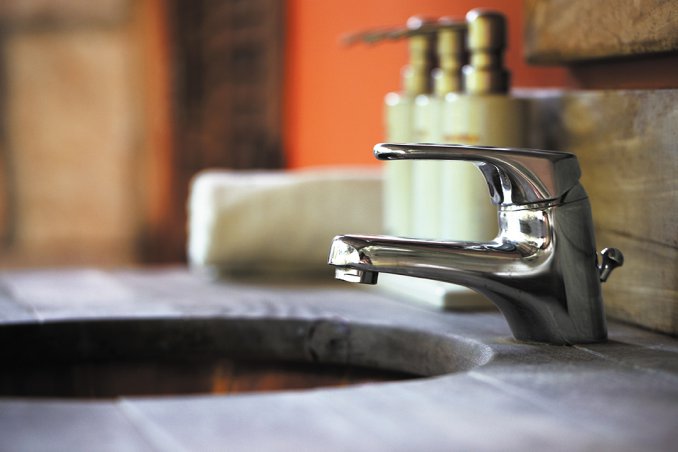The taps must be cleaned and washed by unscrewing the mouth and cleaning it from the grains that obstruct the passage of water. You can use normal cleaning products to remove limescale, but hot vinegar is also fine. The moving parts can be left to soak in water and vinegar for a few hours and then rinsed.
Do not use a spray cleaner directly on the faucet, as the spray can penetrate into the crevices of the tap and cause damage, but use a sponge or cloth soaked in the substance. Always rinse every single piece treated with detergent with water and remove any residue.
Read also: How To Remove Wax From The Floor Without Scratching It
The kitchen sinks are made of multiple materials; natural (steel made stainless by the stainless steel treatment or ceramic), synthetic (melamine or epoxy-based thermosetting resins), and grit.
To degrease the steel you can use a lemon dish detergent while the limescale stains can be removed, as well as with specific products, also with hot vinegar, to be scrubbed with a sponge, or half a lemon already squeezed. It is essential to rinse everything with lukewarm water as vinegar or lemon can corrode metals.

The rustic can be removed by sprinkling the area with bicarbonate to be rubbed with half a lemon, always rinsing with water. Avoid abrasive powders, scouring pads, and detergents that contain chlorine such as bleach or muriatic acid. Also pay attention to grapefruit juice, cola, salt, and coffee which can stain the surface of the sink.
The ceramic is a very delicate material but if it has been properly treated is resistant to the acids present in the kitchen. To clean you can always use normal detergents on the market. To remove yellow stains, use lemon juice, rubbing it vigorously, and letting it act for a few minutes before rinsing it.
Also read: How To Clean Baking Trays
The sinks made of synthetic do not stain easily, therefore no particular maintenance is required. Stubborn organic stains must be removed with detergents containing chlorine (diluted bleach) while traces of limescale must be removed with vinegar, hot water, and a non-abrasive cloth to avoid scratching the surface. Remember not to place hot pots on the edges and drainer.
Grit sinks can still be found, usually found in old country houses. In this case, clean the sink with a hard brush and detergent to remove the dirt from the rough surface. To disinfect it, use vinegar or lemon juice and always rinse with plenty of water to remove all residues from the surface, then pat it dry with a cotton or linen cloth.
Adapted and translated by Wiki Avenue Staff
Sources: Donnad






